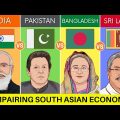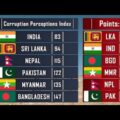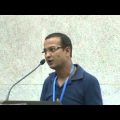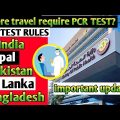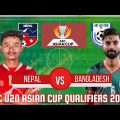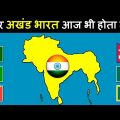The South Asian Association for Regional Cooperation (SAARC) is the regional intergovernmental organization and geopolitical union of states in South Asia. Its member states are Afghanistan, Bangladesh, Bhutan, India, the Maldives, Nepal, Pakistan and Sri Lanka. The SAARC comprises 3% of the world’s area, 21% of the world’s population and 4.21% (US$3.67 trillion) of the global economy, as of 2019
The SAARC was founded in Dhaka on 8 December 1985. Its secretariat is based in Kathmandu, Nepal. The organization promotes development of economic and regional integration. It launched the South Asian Free Trade Area in 2006.The SAARC maintains permanent diplomatic relations at the United Nations as an observer and has developed links with multilateral entities, including the European Union.
In the ending years of the 1970s, the seven inner South Asian nations that included Bangladesh, Bhutan, India, the Maldives, Nepal, Pakistan, and Sri Lanka agreed upon the creation of a trade bloc and to provide a platform for the people of South Asia to work together in a spirit of friendship, trust, and understanding. President Ziaur Rahman later addressed official letters to the leaders of the countries of the South Asia, presenting his vision for the future of the region and the compelling arguments for region. During his visit to India in December 1977, Rahman discussed the issue of regional cooperation with the Indian Prime Minister, Morarji Desai. In the inaugural speech to the Colombo Plan Consultative Committee which met in Kathmandu also in 1977, King Birendra of Nepal gave a call for close regional cooperation among South Asian countries in sharing river waters.
After the USSR’s intervention in Afghanistan, the efforts to establish the union was accelerated in 1979 and the resulting rapid deterioration of South Asian security situation. Responding to Rahman and Birendra’s convention, the officials of the foreign ministries of the seven countries met for the first time in Colombo in April 1981. The Bangladeshi proposal was promptly endorsed by Nepal, Sri Lanka, Bhutan, and the Maldives but India and Pakistan were sceptical initially. The Indian concern was the proposal’s reference to the security matters in South Asia and feared that Rahman’s proposal for a regional organisation might provide an opportunity for new smaller neighbours to re-internationalize all bilateral issues and to join with each other to form an opposition against India. Pakistan assumed that it might be an Indian strategy to organize the other South Asian countries against Pakistan and ensure a regional market for Indian products, thereby consolidating and further strengthening India’s economic dominance in the region.
However, after a series of diplomatic consultations headed by Bangladesh between South Asian U.N. representatives at the UN headquarters in New York, from September 1979 to 1980, it was agreed that Bangladesh would prepare the draft of a working paper for discussion among the foreign secretaries of South Asian countries. The foreign secretaries of the inner seven countries again delegated a Committee of the Whole in Colombo in September 1981, which identified five broad areas for regional cooperation. New areas of co-operation were added in the following years.
In 1983, the international conference held in Dhaka by its Ministry of Foreign Affairs, the foreign ministers of the inner seven countries adopted the Declaration on South Asian Association Regional Cooperation (SAARC) and formally launched the Integrated Programme of Action (IPA) initially in five agreed areas of cooperation namely, Agriculture; Rural Development; Telecommunications; Meteorology; and Health and Population Activities.
Officially, the union was established in Dhaka with Kathmandu being the union’s secretariat-general. The first SAARC summit was held in Dhaka on 7–8 December 1985 and hosted by the President of Bangladesh Hussain Ershad. The declaration signed by King of Bhutan Jigme Singye Wangchuk, President of Pakistan Zia-ul-Haq, Prime Minister of India Rajiv Gandhi, King of Nepal Birendra Shah, President of Sri Lanka JR Jayewardene, and President of Maldives Maumoon Gayoom.

